Affiliate links on Android Authority may earn us a commission. Learn more.
Why Apple Is Very Afraid Of Samsung
Published onOctober 7, 2011
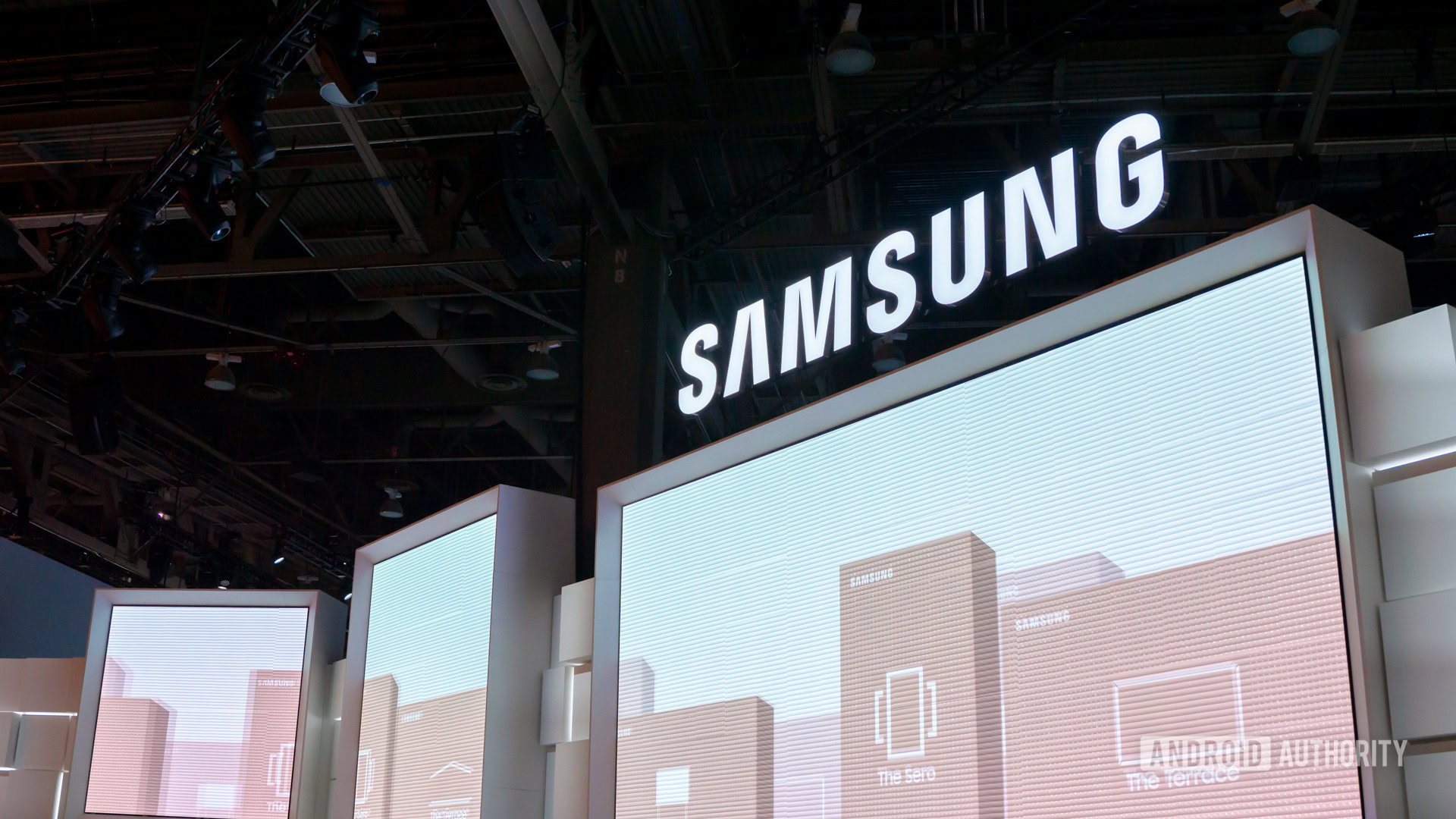
There have been many articles floating around in cyberspace about Apple fearing Samsung, and yet, there are none like the one you are about to read. Most of them will talk about patents; I prefer to talk about facts. Here’s my two cents on this issue.
Samsung Is Bigger Than You Think

Ask any Tom, Dick, Harry or Jane – “what does Samsung make?” – and the general response will be “electronics”. Is that so?
The truth is, Samsung is involved in much more than just mobile phones and electronics. They are a massive company in Korea, and they are involved in almost every area of business, including shipbuilding, aviation, heavy machinery, retail, apparel, finance, chemicals, food, electronics and more. They also have a non-profit arm in medicine called Samsung Medical Centre which is one of the largest cancer centers in Asia.
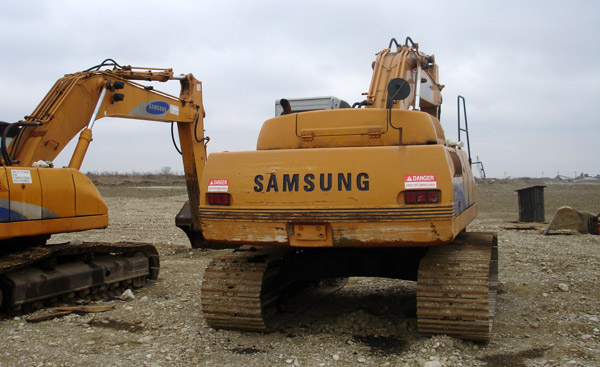
Humor me, but imagine this. Imagine for some odd reason, Android grew and penetrated each and every area of business that the Samsung Group is involved in. Imagine Android (or Bada) having such a wide reach that Apple could never compete on scale. Imagine future machinery and heavy industries relying on Android OS. Imagine medical centers doing research with Android tablets, and airplanes flying in the air using Android OS.
That’s potentially what Samsung could be in the future.
Should Apple be afraid of Android OS integration into these industries? Yep. They are very afraid.
Samsung Has A Better Distribution Channel
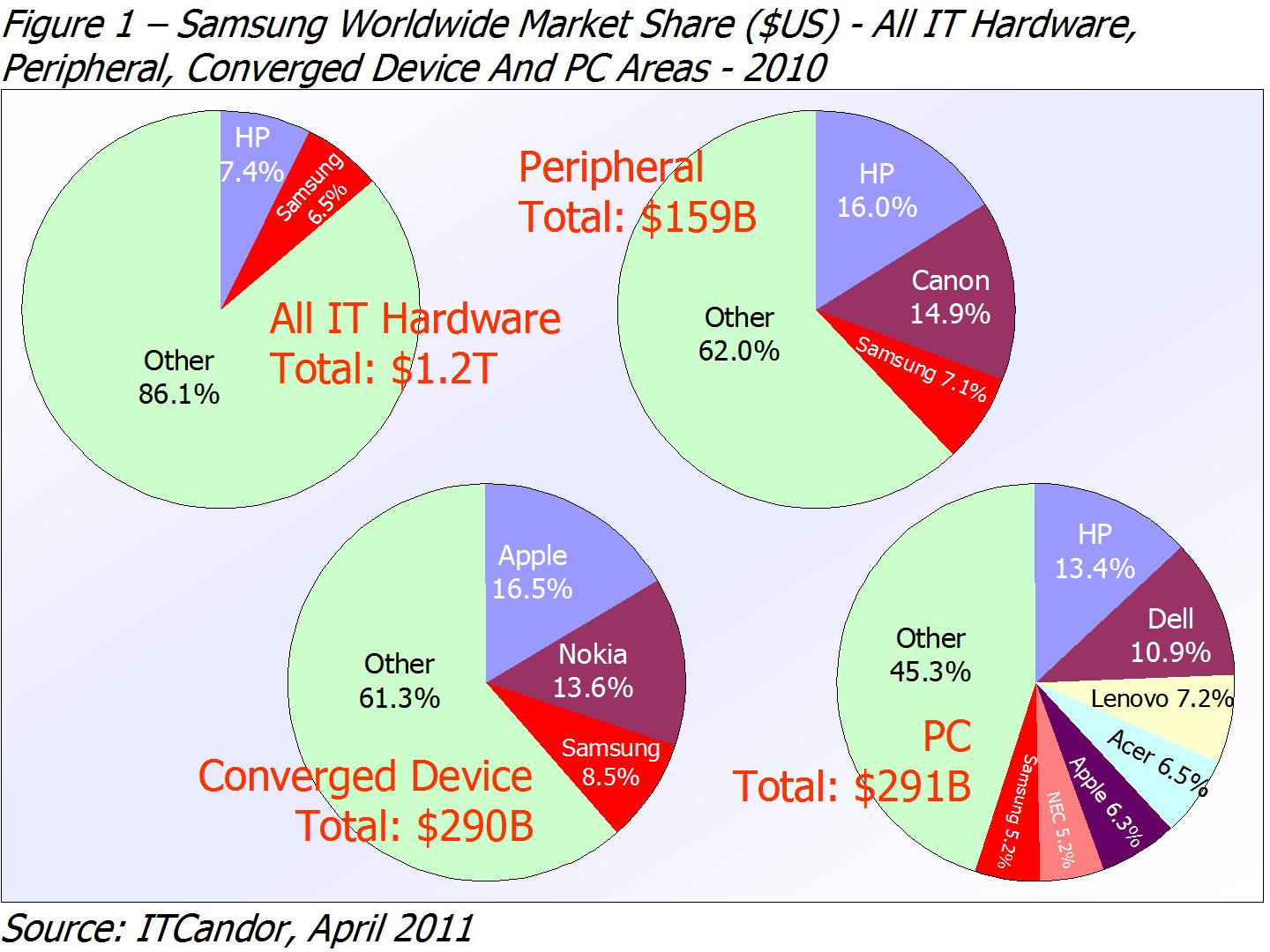
Apple sells their products through Telcos, Apple Stores the Apple website, and their retail distribution channels. Samsung can sell anywhere they want as long as retailers are willing to take stock. Apple can ban, block and have as many injunctions as they want, but it will not stop Samsung from selling indirectly to consumers. However, if the same ban is applied to Apple, they are in a bad position.
Compared to Apple, Samsung has the ability to quickly expand and saturate the market with their products, bar America – as the telco relationship in the USA require that Samsung create different versions of their phone(s). Apple, on the other hand, sells according to the country tiers. In Malaysia, where I come from, there are “rumours” that refurbished iPhones (instead of new ones) are being circulated to tier 2 countries. This speculation was again emphasized when consumers in China sued Apple for selling refurbished phones.
Samsung also has an existing distribution network from their existing businesses. This is of tremendous value. Unlike Apple, Samsung does not need much in the way of resources to bring their phones and tablets to new markets — unlike Apple. These distribution channels will also be there for the future dissemination of other Samsung products. This means that if they want to, it’s easy for them to market more than just electronics.
Apple’s Leadership Is Suffering Badly
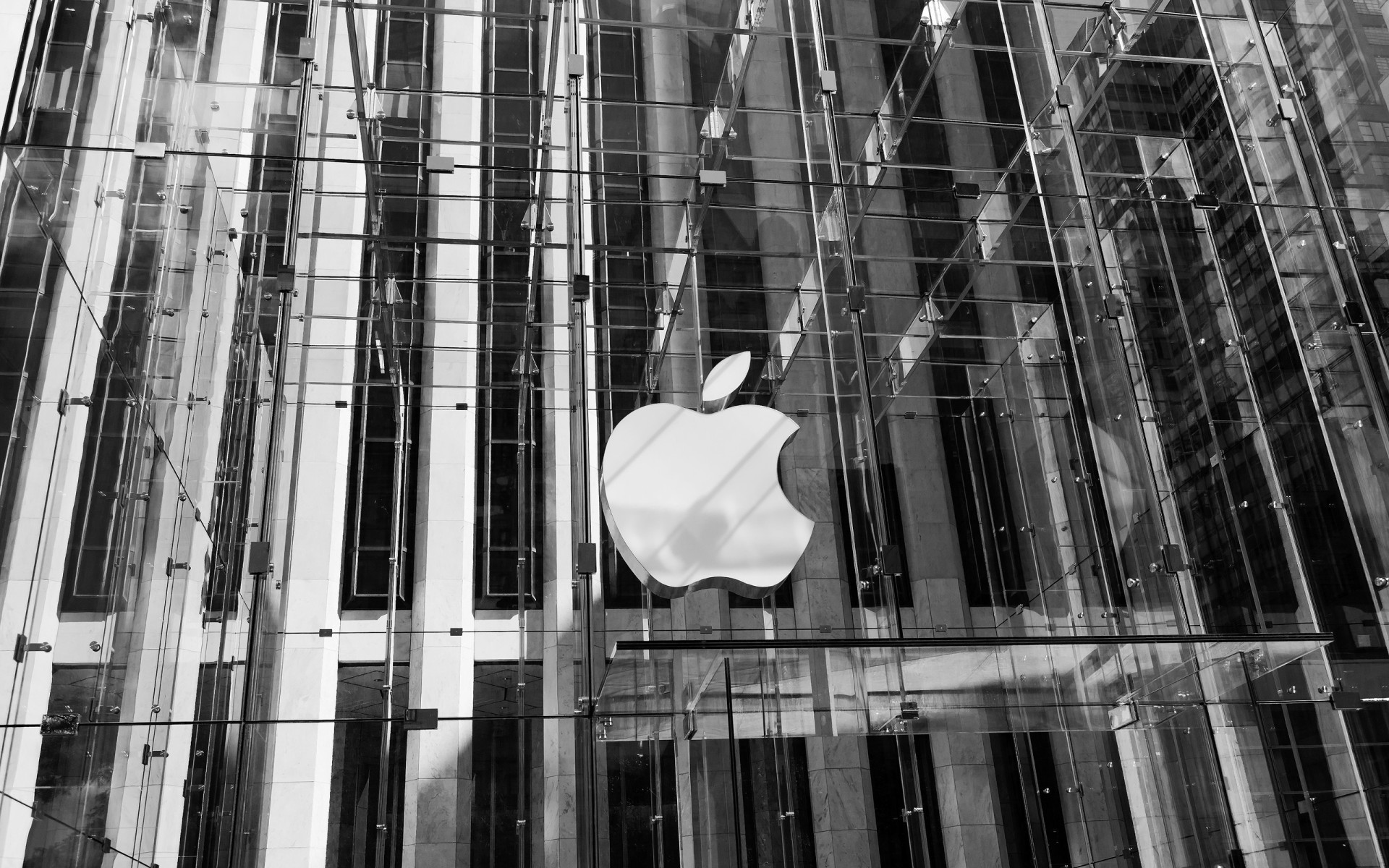
We all mourn the passing of Steve Jobs. He was a leader unlike any other. Whether you’re an Apple fan or an Android enthusiast, you’ve all felt Steve Job’s effect on the world. With Steve gone, and the iPhone 4S looking really bad at the recent launch, it’s hard to say that Apple will continue to have a strong grip on the industry. Apple’s iOS 5 notifications revamp and Siri were acquired from Nuance and not innovated from scratch. It’s hard to imagine that using this management style will enable them to continue to be competitive. I personally find it a shocker that they didn’t release the rumoured teardrop iPhone 5. It would have been the type of launch the company needed at this point of time – instead of the disappointing iPhone 4S.
This is the time for Samsung to shine. What they do now will undoubtedly lead them to where they will be tomorrow. This is the most crucial period for Samsung in the history of their company, as the true test for the Korean giant has begun. Whether they become the next innovative leader or catalyse their own doom will all depend on what they do in the next year.
Apple’s Potential Maxed?

Earlier this year we were given a preview of iOS 5. It came with a new notification system, and many other elements that appeared to be heavily borrowed from Android. Siri was revealed at the iPhone 4S launch. These are the two biggest ‘game changing’ additions to iOS 5. The problem is they acquired the iOS notification system when they hired a developer from the jailbreak community, while Siri was from Nuance. Their camera lenses have previously been from Sony as well. The only new innovation on the table is the A5 chip.
Apple’s new business trend seems to be buying up good tech and incorporating it into their own ecosystem. I don’t know, it just sounds lazy to me. Samsung on the other hand, brought in Steve Kondik and acquired Grandis (a MRAM developer). Cyanogenmod fans will be watching Samsung closely. I doubt there will be a Cyanogenmod based Samsung phone in the near future, though I expect major improvements to Touchwiz and Samsung’s version of the Android OS. I’m not sure how Samsung will use Grandis for Android, maybe not at all.
Despite all that’s been said, it is crucial that Samsung continues to innovate new and fresh ideas to grow their dominance. Acquisitions should always be made as a last resort. Organic batteries would be a good place for Samsung to start.
Samsung Innovates Faster than Apple
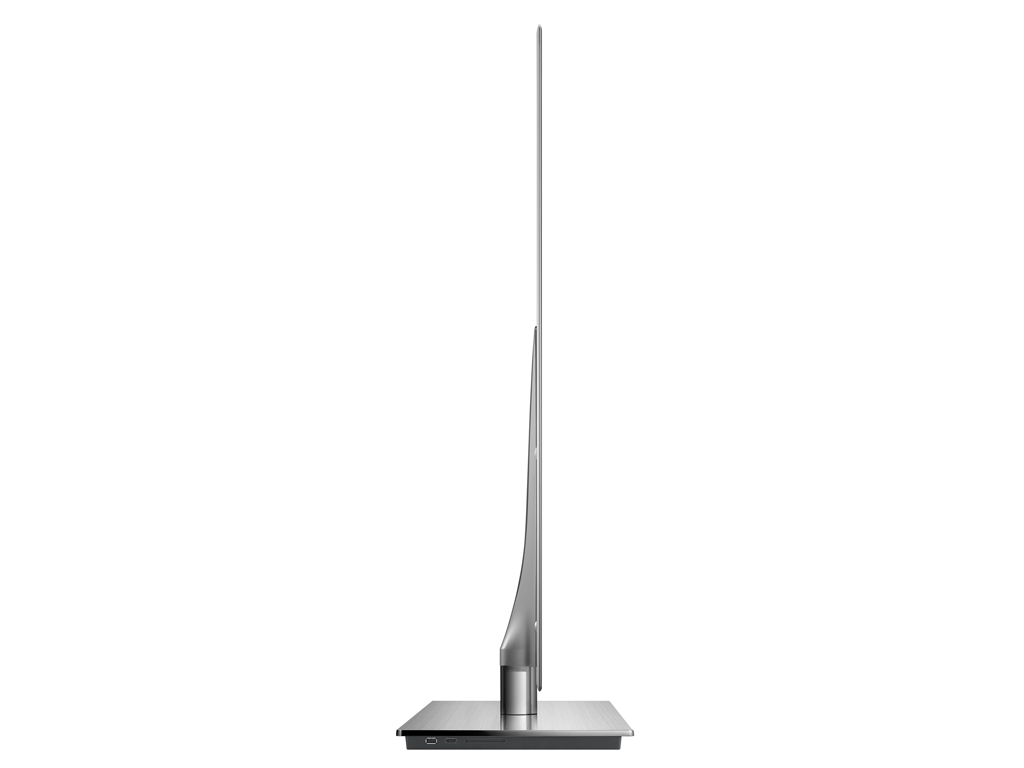
When Samsung released the original Samsung Galaxy S, it came with Super AMOLED. One generation later, the Samsung Galaxy S2 was released with Super AMOLED Plus. We are already hearing rumours of a Super Amoled HD in the works. The same goes with the Hummingbird to Exynos processor transition as well as the radical change in phone design. Also compare the original Galaxy Tab with the Galaxy Tab 10.1.
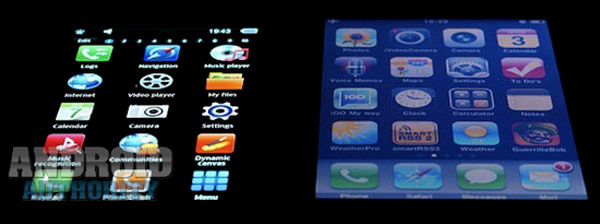
If you hold the Galaxy S in one hand and the Galaxy S2 in the other, you’ll be surprised what Samsung did within 1 year. After 6 months of the Galaxy S2 launch, they will be releasing the Nexus Prime (or Galaxy Nexus), and this will again raise the bar too fast for others to catch their breath.
You can’t ignore such change.
Apple on the other hand, takes 2 years to raise the bar in a significant way. Can you recall how long it took them to incorporate copy and paste? They took a pounding when the Android notification system hit their market share; causing them to grudgingly improve their notification system in iOS 5 as well.
It is clear after the iPhone 4S launch, that Apple no longer leads in innovation, but is a follower of trends. I also foresee the same antennagate, glassgate and cameragate happening to the iPhone 4S. Might as well throw in Sirigate early into the mix if the current Autocorrect problems haven’t given you enough of a headache, yet.
Samsung Integration Has Begun
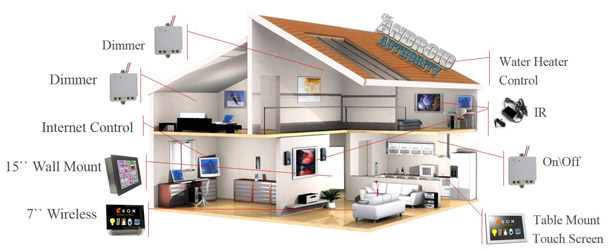
After Android@Home was revealed at this year’s Google I/O, it is becoming clearer what Android will be in the next few years.
Truly, “Integration” is the next big thing. Compared to other Android manufacturers, Samsung is the most ready of all. Samsung has already used DLNA through their AllShare app with their Samsung TVs, and one could imagine that they will start to incorporating Android into other electronics. Case in point, ask yourself these questions:
- What if your Samsung fridge could tell you to pick up milk (or maybe place an order online)?
- What if your Samsung TV could identify your favorite TV programs and record them without asking?
- What if your Samsung Home could learn to switch air conditioners and lights off when you leave the house?
- What if you could download a recipe from the web, and your kitchen teaches you how to prepare and cook it?
- What if your Samsung DSLR camera could share your pictures throughout all your devices?
- What if your Samsung DVD/Blu-Ray players knows what you like and sends you recommendations of the latest movies?
- What if you could do all the above on non-Samsung devices because of Android?
- What if this is Samsung’s future?
Apple cannot achieve this at the moment because they will be investing into technologies that will not give them an immediate return. For them to match Samsung’s momentum in this area, it will take them another 10-15 years, unless they open source iOS, which will never happen.
Is Apple afraid of Samsung?
Yes. Very.